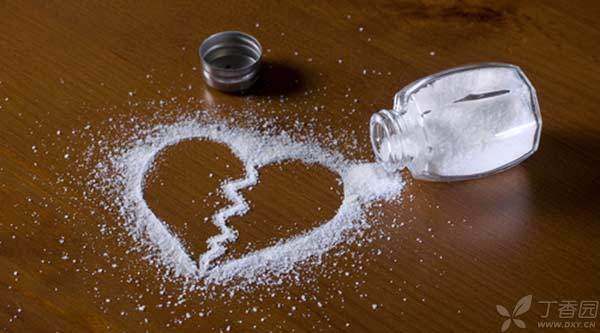
Salty taste plays a very important role in the Chinese menu.
Some people say that salty is [the first of all flavors].
There is an old saying: seven things to open the door: firewood, rice, oil, salt, sauce, vinegar and tea. This sauce and vinegar are also based on salty freshness.
With the blending of food culture, the taste of many places originally referred to as “light diet” has become heavier and heavier, regardless of region, and people are more and more fond of “taste”. However, when pursuing taste stimulation, do you know that salt may change you into various diseases? Dr. Clove will count the [four sins] of salt for everyone today.
First Crime: Inducing Hypertension, Cardiovascular Disease and Stroke?
At present, many studies have confirmed that salt intake is related to blood pressure.
In the earliest animal experiments, people found that high salt intake will increase hypertension. Later, in many population epidemiological surveys, it was also found that if salt intake in the diet increased, hypertension would increase. However, blood pressure will decrease after reducing salt intake.
The rise of blood pressure is the main cause of cardiovascular and cerebrovascular diseases.
Some studies have found that when the daily salt intake exceeds 4g, the risk of stroke is significantly higher than that of people who eat less than 1.5 g of salt per day. Moreover, for every 0.5 g increase in daily salt intake, the risk of stroke increases by 17% [7]. Other studies have found that when the daily salt intake increases to 6g, the number of deaths from coronary heart disease increases by 56%, and the number of deaths from heart disease increases by 36%.
Long-term high-salt diet will increase the risk of hypertension, which in turn will make people more vulnerable to cardiovascular and cerebrovascular diseases such as stroke and coronary heart disease.

Second Crime: Inducing Kidney Disease?
Kidney is an important metabolic organ of the human body. Many metabolic wastes of the human body pass through the kidney and are eventually discharged out of the body in the form of urine. Salt is also discharged out of the body through urine through the kidney.
In animal experiments, people found that high salt intake will increase the amount of protein in urine. Later, further research in human body also found that high salt intake will also increase the protein content in urine, which is a danger signal for kidney injury and kidney diseases [8].
More salt than the body needs will increase the burden on the kidney. The higher the salt diet, the heavier the kidney burden, the greater the possibility of kidney damage, and the higher the risk of kidney disease for people with heavy taste [9].
Normal people need to pay attention, and for people whose kidney function is not very good, they need to be more cautious.
The third crime: inducing osteoporosis and kidney stones?
Epidemiological investigations and studies have long found that people who eat high salt for a long time are more likely to suffer from osteoporosis, kidney stones and other diseases, which may be caused by sodium ion metabolism in human body.
Sodium ions are one of the main components of salt. When the amount of salt eaten by the human body exceeds a certain amount, sodium ions need to be discharged from the human body. In this process, some calcium ions need to be carried, so the amount of calcium discharged will also increase.
Some studies have shown that if you eat too much salt at ordinary times, the calcium level in urine will increase. In the long run, it may lead to bone thinning and osteoporosis, and also increase the risk of fracture.
However, the increase of calcium ions in urine will also increase the risk of kidney stones.
The fourth crime: inducing gastric cancer?
As early as the 1990s, European researchers noticed the relationship between high-salt diet and high incidence of gastric cancer.
Researchers studied a group of adults and found that people who eat high salt for a long time have higher incidence and mortality of gastric cancer. In addition, several studies in Japan, London and other countries have confirmed that too much salt increases the risk of gastric cancer.
How much salt should I eat every day?
The latest edition of the American Dietary Guidelines consumes about 3.8 grams of salt per day, which is about as much as a beer cover.
However, it is worth noting that there are some foods that contain some [hidden salt]. Eating too much is equivalent to [excessive salt].
Well, here’s the question. What do you think of these foods?
